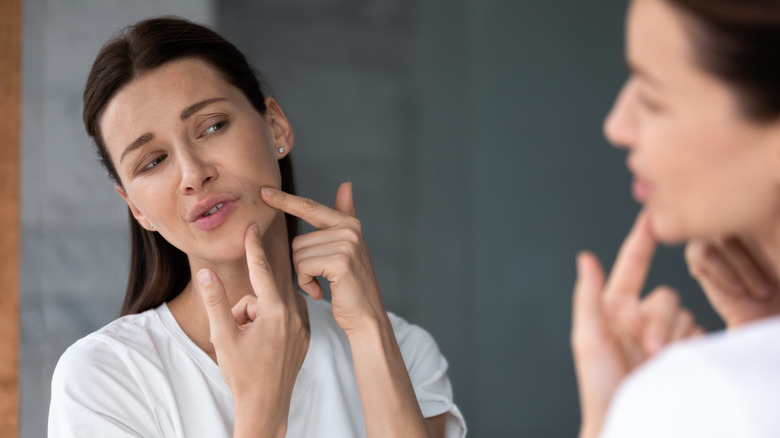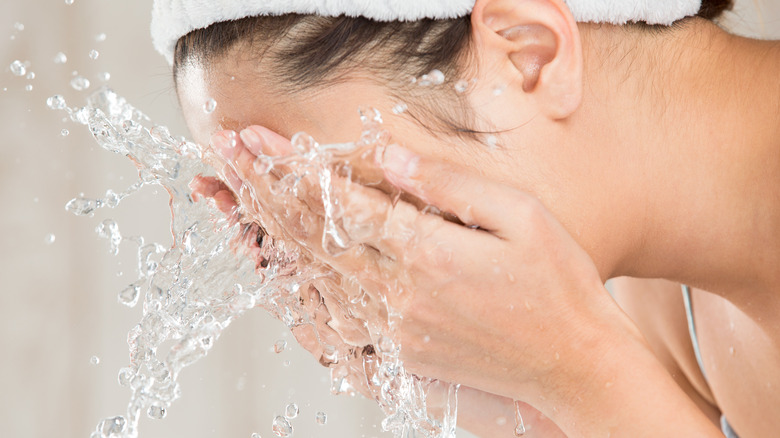The Real Reason Your Acne Feels Warm
We all know the common symptoms of acne, like raised bumps and blackheads. The occasional pimple probably won't feel odd, but you may notice that some acne also feels warm to the touch. Warm acne may mean that you have one or more pimples that are infected (via Healthline). Pimples can become infected when you pick at your acne and allow additional bacteria to get on your skin. Infected pimples are often larger than the other acne on your face and may feel sore when you touch them.
To treat an infected pimple, you should keep the area clean to ensure that the bacteria doesn't continue to grow. You can also swipe the area with hydrogen peroxide or hold a warm compress on your face to reduce swelling. You can avoid infected pimples by not picking at your face or popping your pimples. You should also wash your face twice a day and wash your hands frequently to avoid the spread of bacteria.
How to treat acne
If your acne isn't infected, there are plenty of ways to treat this skin condition. According to Teen Vogue, the most important part of treating acne is washing your face every day. Use a cleanser that contains breakout-fighting ingredients like salicylic acid and benzoyl peroxide. It can be tempting to exfoliate your face every day, but you can damage your skin if you go overboard. "Exfoliating a pimple can pull away healthy skin cells and create an open wound and higher risk for scarring," said Jessica Weiser, MD, from New York Dermatology Group. "Exfoliation should be done with caution, and not more than two to three times a week maximum."
It can also be tempting to skip your moisturizer if you suffer from oily and acne-ridden skin, but a good face lotion is key to treating pimples. Dry skin can cause your face to overproduce oil and lead to more acne in the long run. Finally, visiting a good dermatologist will be the best thing you do for your skin. They can use their expertise to find the best treatment for you.


